Express an opinion, and you’ll quickly find it challenged. Name an issue, and you can expect to hear from two (or more) camps insisting they’re right, and the other side(s) are wrong.
We’re for dogs, they’re for cats. My toilet paper rolls over the top; yours rolls under. I choose a window seat, and you go for aisle. One side says cilantro (coriander) is delicious, the other says it tastes like soap. Heck, we can’t even agree on what it’s called!
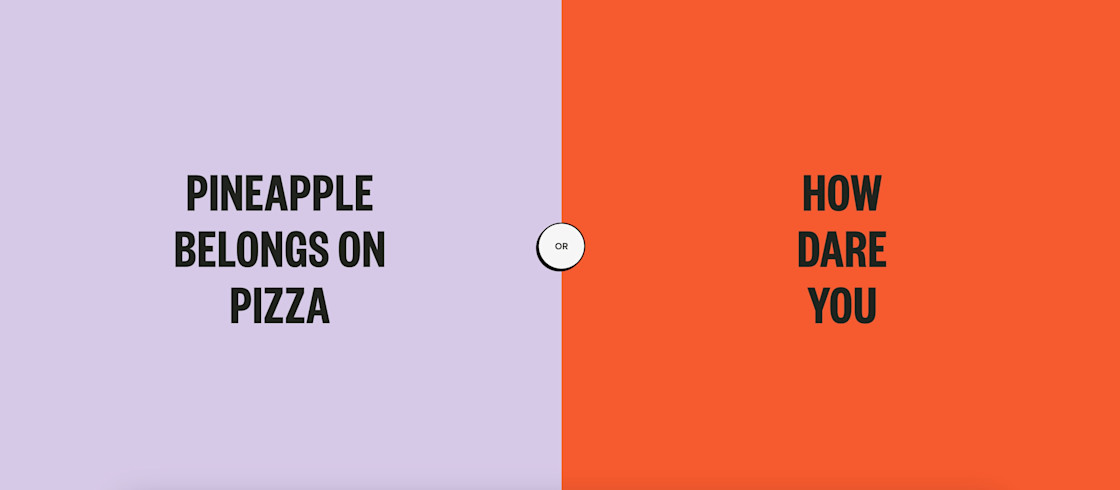
But here’s the thing.
Ask anyone — anyone! — which water humans should drink, and you’ll have found it: one thing we can all agree on.
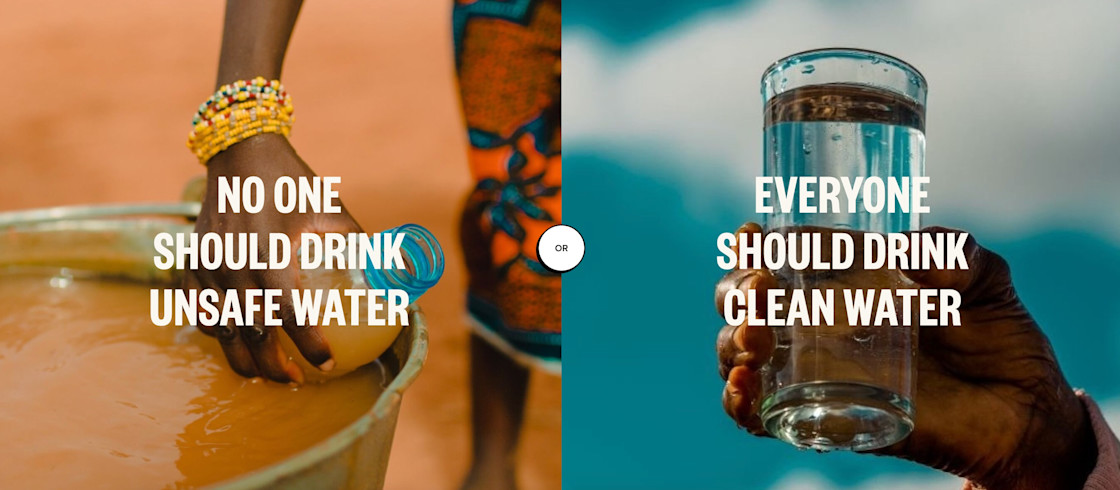
Because whether they’re Team Ross or Team Rachel (were they on a break?), iPhone or Android, tea or coffee, humans are fundamentally good.
So if we all agree that everyone should drink clean water, how do we make sense of the fact that 10% of the world’s population is drinking water that makes them sick?
This World Water Day (and every day), we’re inviting you to be part of the solution.
What is World Water Day?
Held on March 22 each year, World Water Day celebrates water and raises awareness of the global water crisis.
This year, the global theme set by UN Water is Water for Peace. After all, water can be the difference between conflict and peace. When water is scarce or polluted, or when people struggle for access, tensions can arise. Providing access to water can help stabilize the world.
Why is water important?
Besides helping to stabilize the world, access to water is closely linked to health, economic opportunity, and education — especially for women and girls.
To illustrate, allow us to introduce you to some real people living in Malawi, Nepal, and Sierra Leone.
Water & Opportunity
When you spend hours each day collecting water — and that water makes you and your family sick much of the time (more on that in a moment) — your ability to pursue an education or earn an income inevitably suffers. This is especially true for women and girls, who are responsible for water collection in 8 out of 10 households with water off-premises.
Having universal access to basic water services (safe sources within a 30-minute round-trip collection time) could save women 77 million working days per year. Imagine what they could do with it.
Mary is a great example of what happens when a woman is able to reclaim time in her day. A young mom with a six-year-old son, Mary lives in rural Malawi. Until recently, she woke as early as 4 a.m. to walk to the river for water. Each day, she tried to get three to five jerry cans — which ate up most of her waking hours.
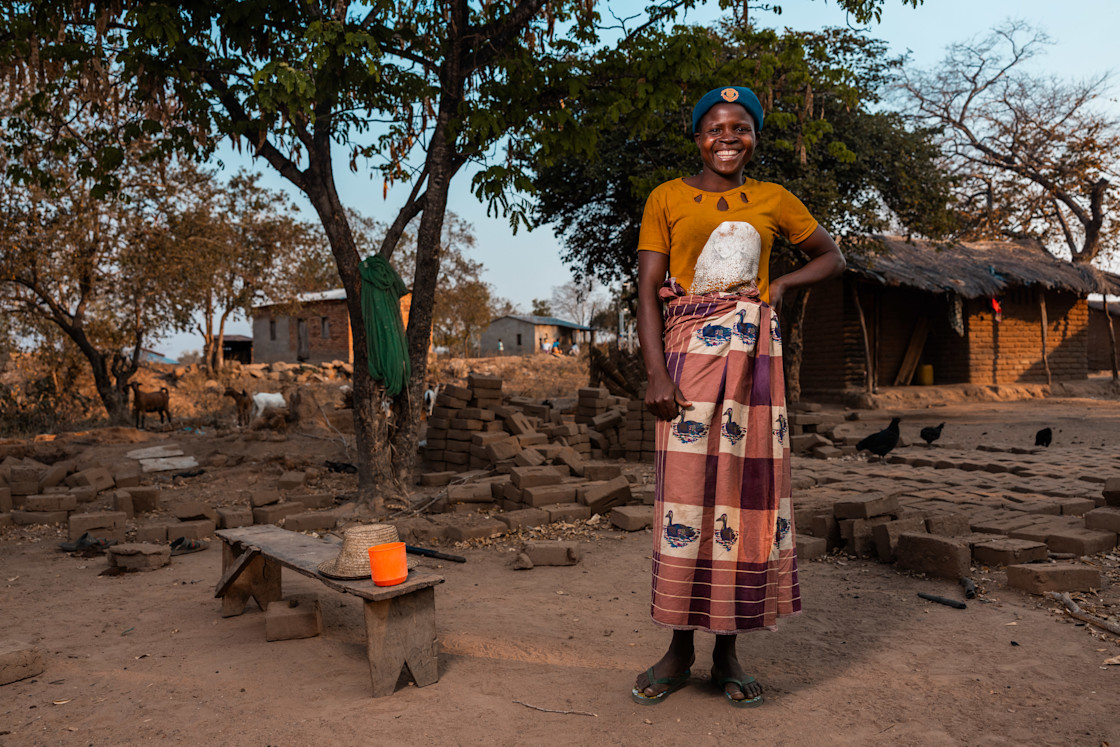
“I didn’t have time to think about or imagine [the future] because most of the things we wanted needed water,” Mary told us. “Because we had this problem, we couldn’t think about any other things. We could only think about water.”
Now? Dreams and ambitions have begun to take root. With clean water close at hand, Mary has been able to reallocate much of her time to more fulfilling activities — like farming sesame seeds. She was able to fill one 50 kilogram bag with seeds and sold it for 90,000 kwacha. She used some of that income to purchase a female goat, and hopes to one day have a whole herd.
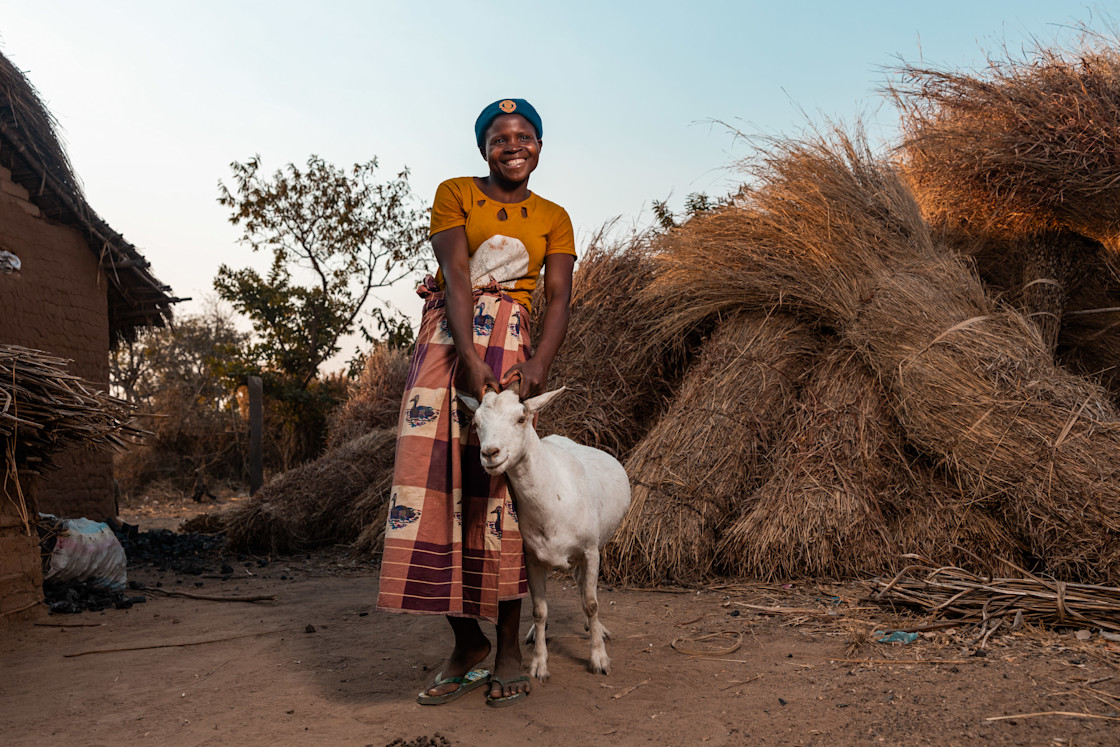
In the meantime, she’s working on building a new house for her family. She’s already managed to mold bricks, and when we last visited, the walls of Mary’s new home were beginning to take shape.
And her future? That’s really taking shape too, thanks to clean water.
Water & Education
For school-age girls, less time collecting water means more time in class. But the connection between water and education is further complicated by the fact that 802 million children lack basic hygiene services at their school. This is particularly problematic for girls, who feel uncomfortable attending school during menstruation.
When schools are provided with improved water and sanitation services, there’s a 31% reduction in absenteeism. The result: more opportunity for kids — especially girls — to learn and to build a brighter future.
Like Sarmila, whom we met on a recent visit to Nepal. Eighteen years old and charismatic as can be, Sarmila has big things in store. But her bright future feels like a relatively recent development. Until December 2020, Sarmila sacrificed a lot to collect water.
Sleep, because she had to get up at 4 a.m. to get in line.
Time, because the whole process took a lot of it.
And education, because time spent walking and waiting for water was time she wasn’t spending at school or studying.
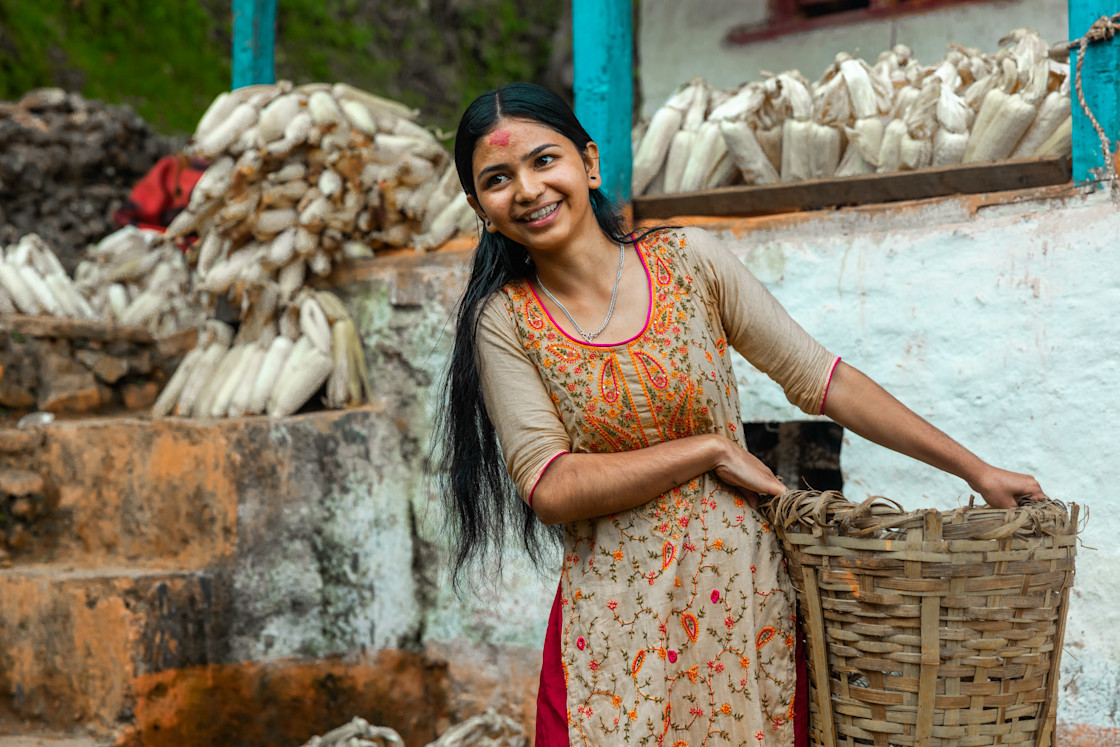
“We couldn’t reach school on time, and we were obviously chastised and even punished by the teachers,” Sarmila told our team.
But punishment was the least of her worries. What mattered most to Sarmila was the education itself, which she sees as a gift and a means of growth — for herself, her community, and her country.
“If we aren’t educated, there’s nothing we can do in life. If we educate our younger generations, the country could grow even further. If I ever become a teacher, I will work hard to ensure that the younger generation receives a proper education.”
She adds, “I would tell younger girls that you have to study hard because there’s nothing greater than education. If we work hard, we’ll definitely secure a bright future.”
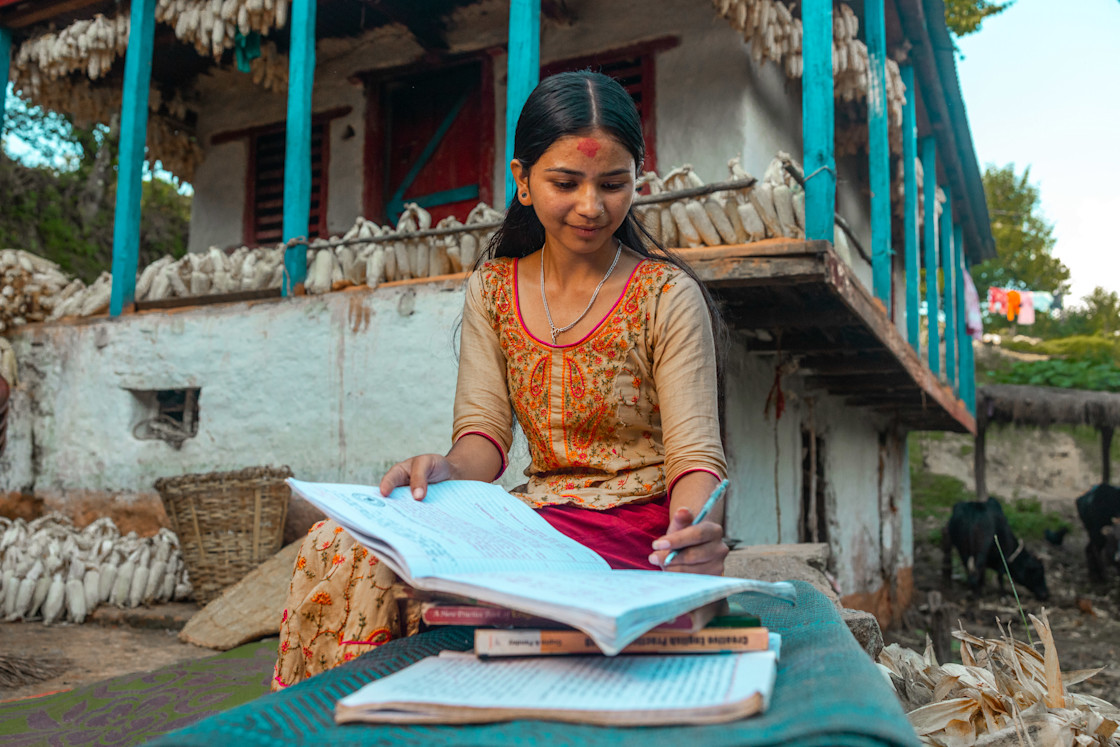
Another bright future, made possible by clean water infrastructure and its remarkable ripple effects.
Water & Health
In some cases, contaminated water can mean no future at all. At its worst, lack of clean water doesn’t just take time and opportunity. It takes lives — especially those of children. In fact, diseases from dirty water kill more people than all forms of violence, including war. Children under the age of five are on average 20 times more likely to die from illnesses linked to unsafe water and bad sanitation than from conflict.
To give you an idea of the scale of the problem, one study found that diarrheal disease from unsafe cleaning water and inadequate sanitation had taken the lives of 297,000 children under five in a single year.
That means mothers like Mamie live in fear. Until a very happy day just a few months ago, she was forced to give her son, Augustine, some of the worst water we’d ever seen.
For this story, we want you to see the horror of the “before” — and the joy of the “after” — for yourself.
Why is water important? Because it changes everything.
What can I do to help?
Everyone has a part to play in ending the world’s water crisis.
The good news: each year, you can provide clean water to one person — someone like Mary, or Sarmila, or Mamie, or little Augustine — for just $3.33/month. If you have more room in your budget, you can help bring clean water to more people.
Joining The Spring, our monthly giving community, is super simple and incredibly impactful. Sign up today and by this time next year, you’ll have changed a life — or many.
And all for less than a single latte each month. Or a matcha, if you’re one of those tea people. Agree to disagree on that one 😉.
It’s Never Been So Easy To Change A Life
More than 60,000 Spring members have decided that they agree on at least one thing: Everyone deserves access to clean and safe water — including the 703 million people currently living without it. Together, The Spring community is taking action, bringing clean water to more than 41,000 people every month. Join them today for as little as $3.33/month, and help us achieve our collective goal: A world in which everyone, everywhere, has the clean water they deserve.
Join the SpringPhotos by Cubby Graham
